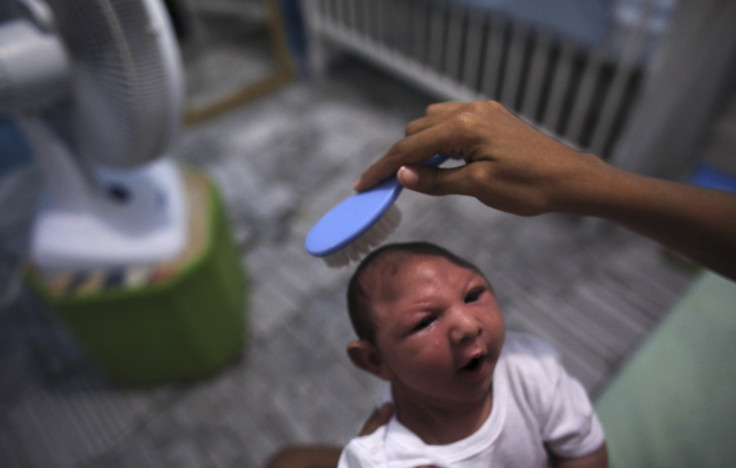
The zika epidemic in Brazil has reopened the abortion debate in that country following reports that the mosquito-born virus is linked to microcephaly, a condition often results in babies being born with smaller heads, smaller brains and limited cognitive ability and motor skills. Abortion is currently banned in Brazil except in cases of lethal risk to the mother, anencephaly (which causes infant death) or rape. A recent poll conducted by a major Brazilian newspaper suggests that the ongoing crisis has not swayed women in the the majority-Catholic country to support legalizing abortion.
Fifty-six percent believe that that women should not be allowed to have an abortion, even with microcephaly has been diagnosed in a fetus, according to the poll, which had a margin of error of two percent. When asked if abortions should be allowed for expectant mothers diagnosed with zika (but not necessarily microcephaly in the fetus), the objection was even stronger, with 61 percent disagreeing that fellow women should be allowed to choose the procedure. Researchers have not come to a consensus that zika causes microcephaly, but the Folha sidesteps that problem in part by asking about those who are already diagnosed with the latter.
Microcephaly is a severe and lifelong developmental disability. Mothers of microcephalic children are essentially condemned to a life of servitude for their child, and anecdotal reports indicate that many are abandoning those born with the disability in orphanages.
Despite Brazil’s robust public healthcare system, the government has failed to provide meaningful assistance to families with children born with microcephaly. (For more on this, read Alex Cuadros’ excellent report for the Washington Post or Lulu Garcia-Navarro’s heart-wrenching report for NPR.)
With public opposition to abortion, but a lack of public support for the victims, abortion advocates are urging the country’s supreme court to take up the issue. Others point to the U.S. experience of legalizing abortion via the courts, arguing that legislation would be better.
Unlike the American public, Brazilian women are significantly more likely to oppose abortion than men. In the Folha poll, 46 percent of men opposed abortion rights for women carrying a child with microcephaly (compared to 56 percent of women, above) and 56 percent opposed those rights in cases of just a zika diagnosis (compared with 61 percent of women).
Additional complexities to the diagnosis make abortion a tough decision for expectant mothers.
“We make an early diagnosis of zika, but we don’t know what percentage of pregnancies with zika will have microcephaly, or how bad the child will be affected. But logically, [abortion] is the right of the woman,” obstetrics Dr. Olímpio Moraes recently told the BBC.
About ten percent of babies diagnosed with microcephaly have no major disabilities, according a story by the New York Times. Abortion rights opponents, in particular religious leaders, argue that no disability should permit women to have complete control over their reproductive health.
“These children are humans and possibly awaken our humanity because they demand more care, more concern,” Leonardo Steiner, auxiliary bishop of Brasilia, told Terra in January.
In the abortion debate, awakening humanity can be argued both ways. For Recife-based SOS Corpo (Body SOS) director Silvia Camurça, it's women’s lives and autonomy that merit concern.
“Pregnant women across Brazil are now in a panic,” Camurça told the New York Times in February “The fears over the Zika virus are giving us a rare opening to challenge the religious fundamentalists who put the lives of thousands of women at risk in Brazil each year to maintain laws belonging in the dark ages.”
© 2025 Latin Times. All rights reserved. Do not reproduce without permission.




